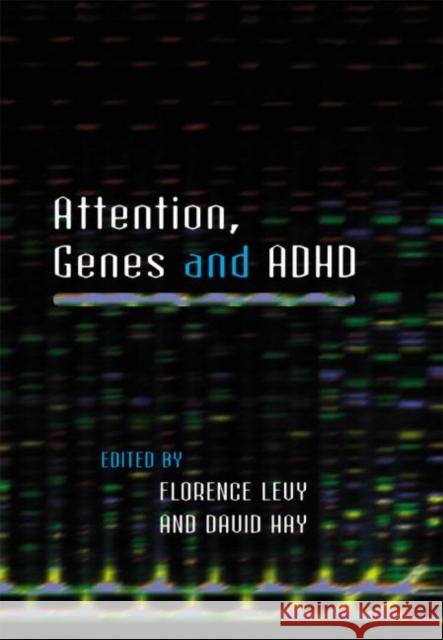Attention, Genes and ADHD » książka
Attention, Genes and ADHD
ISBN-13: 9781841692678 / Angielski / Miękka / 2002 / 288 str.
Attention, Genes and ADHD
ISBN-13: 9781841692678 / Angielski / Miękka / 2002 / 288 str.
(netto: 181,13 VAT: 5%)
Najniższa cena z 30 dni: 178,95
ok. 16-18 dni roboczych.
Darmowa dostawa!
Recent advances in genetic methodology are providing important aetiological and developmental information to the growing literature on Attention Deficit Hyperactivity Disorder (ADHD) and related conditions. Attention, Genes and ADHD is the first book to review and integrate both behaviour-genetic and molecular-genetic advances in this area. It brings together international researchers to show how modern techniques may be applied to the investigation of ADHD, and reviews current findings in the field of ADHD and related conditions.
The book looks at the application of behaviour genetic approaches to twin studies, and reviews diagnostic to ADHD, the relationships between reading, spelling and ADHD, and family and genetic influences on speech and speech and language.
Chapters go on to consider the overlaps between ADHD, Oppositional Defiant Disorder and Conduct Disorder and to explore the environmental and genetic influences among these disorders. The neurobiological and genetic relationship between ADHD and Tourette's Disorder is also examined. The book reviews recent advances in molecular genetics - in particular a discussion of Fragile X as a model for a single single gene effects on ADHD, and the application of genetic methods and approaches to the study of candidate genes. Finally, the implications for education and intervention are discussed, and current and future roles of gentic studies of ADHD are explored, as well as implications of the sequencing of the human genome for child psychiatry.
Recent advances in genetic methodology are providing important aetiological and developmental information to the growing literature on Attention Deficit Hyperactivity Disorder (ADHD) and related conditions. Attention, Genes and ADHD is the first book to review and integrate both behaviour-genetic and molecular-genetic advances in this area. It brings together international researchers to show how modern techniques may be applied to the investigation of ADHD, and reviews current findings in the field of ADHD and related conditions.
The book looks at the application of behaviour genetic approaches to twin studies, and reviews diagnostic to ADHD, the relationships between reading, spelling and ADHD, and family and genetic influences on speech and speech and language.
Chapters go on to consider the overlaps between ADHD, Oppositional Defiant Disorder and Conduct Disorder and to explore the environmental and genetic influences among these disorders. The neurobiological and genetic relationship between ADHD and Tourette's Disorder is also examined. The book reviews recent advances in molecular genetics - in particular a discussion of Fragile X as a model for a single single gene effects on ADHD, and the application of genetic methods and approaches to the study of candidate genes. Finally, the implications for education and intervention are discussed, and current and future roles of gentic studies of ADHD are explored, as well as implications of the sequencing of the human genome for child psychiatry.











